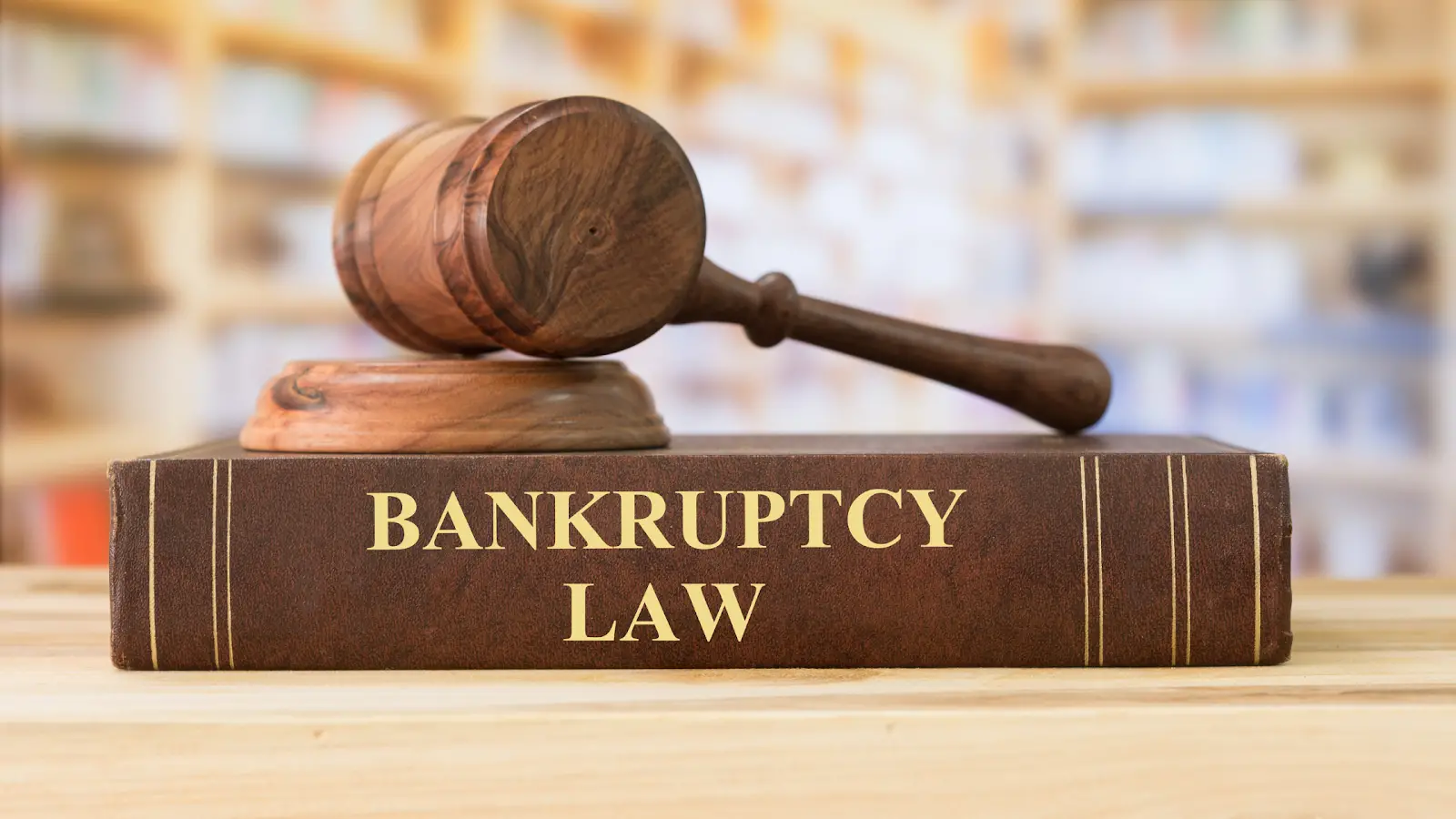What Debts Are Difficult To Eliminate In Bankruptcy
With some other types of debt, it’s possible to get a clean slate with bankruptcy.
Student loans: Loans taken out for college may not be eliminated in the vast majority of cases. All types of education loans qualify as student loans and are generally exempt from elimination in bankruptcy: federal student loans, private lender student loans and loans directly from a university.
There are exceptions, though. One is that you can prove you’ll never be able to work again because of a complete and permanent disability. Another exception is undue hardship, which requires you to prove that you’ve made good faith efforts to repay the loan, repaying it would keep you from maintaining a minimal standard of living for yourself and your dependents and the circumstances making it difficult for you to make payments are unlikely to change during the repayment period.
The standards for both options are very high, however, and it’s rare that either exception is granted.
Income tax liability: You can wipe out some income tax liability in a bankruptcy filing, but there is a very specific and extensive test required to do so.
Eligibility Requirements To File Chapter 7 Bankruptcy
There are certain eligibility restrictions and requirements individuals must meet in order to file for Chapter 7 bankruptcy. For instance, if you have received a bankruptcy discharge within the last 6-8 years, you are likely ineligible to file Chapter 7. You also wont be eligible to file Chapter 7 if you have had a Chapter 7 or 13 case dismissed within the previous 180 days due to violating a court order, or if a court has determined that you fraudulently filed for bankruptcy in the past.
Additionally, if your monthly income exceeds the median income for a household of your size within your state, you are not eligible unless you complete the Means Test, which measures your disposable income and determines the amount of your debt that the government believes you could reasonably repay over a five-year repayment period.
Lastly, your bankruptcy claim could be dismissed if the court believes that you have attempted to deceive or cheat your creditors, or that you have concealed your assets to protect your property. Actions and behaviors that will raise the suspicion of the court may include:
- Transferring assets to friends and family
- Maximizing debts when it was clear that you were incapable of repayment
- Hiding assets or money during a divorce
- Lying or failing to disclose accurate information concerning debts and income on a credit application
Does Filing For Bankruptcy Stop Taxes
May also be a liquidation. Debtor must file returns for the last four tax periods. Dismissal: IRS may keep payments, and time in bankruptcy extends time to collect remaining tax liabilities. Discharge: Will eliminate tax debts paid in the plan and tax debts older than three years unless returns filed late.
Also Check: How Much Does H& r Block Charge To Do Taxes
Find Out What Happens To Irs Collection Of Tax Debts When You File For Chapter 7 Or Chapter 13 Bankruptcy
By Carron Nicks
A bankruptcy case can wipe out older income tax debt that meets qualification guidelines. It can also give you a way to pay back recently assessed taxes at a payment amount lower than what the IRS would offer. In this article, you’ll learn more about how bankruptcy can help with your IRS debt.
Oak Creek Bankruptcy Attorney Answers Your Questions About Clearing Tax Debt

Filing for bankruptcy requires meticulous attention to detail and intimate knowledge of bankruptcy law. Attempting to file for bankruptcy by yourself can be frustrating and exhausting without the help of an experienced professional. Steven R. McDonald is the helping hand you need to re-gain control of your financial present and future.
Don’t Miss: How Much Does H& r Block Charge For Doing Taxes
Debt Discharge Attorney In Bethlehem
I am attorney John R.K. Solt, and I can help you understand what types of debt can be dealt with via bankruptcy and which cannot. I have 40 years of experience in this area of law and have helped many Pennsylvanians regain their financial stability. My firm achieves positive results through honest, open communication with clients and through determined advocacy in court against creditors.
Is A Judgment A Dischargeable Debt In Bankruptcy
The manner in which a judgment is obtained has no bearing on whether bankruptcy can eliminate it. What matters is if the debt or obligation underlying the judgment is subject to discharge through bankruptcy.
- Overdue rent or bill payments
- Private debts to friends or family members
The attachment of a judgment to a debt does not change the debt’s eligibility for discharge through bankruptcy, and judgments associated with debts such as these are typically eliminated in the bankruptcy process.
Debts are discharged in a Chapter 7 proceeding following the debtor’s forfeiture of assets . Debts are discharged in a Chapter 13 bankruptcy after the debtor completes the repayment plan imposed by the bankruptcy court.
Neither Chapter 7 nor Chapter 13 bankruptcy can discharge all debts, however. Obligations that cannot be eliminated through bankruptcy include:
- Child support and alimony
- Mortgages
- Obligations incurred through negligence, fraud or other criminal acts
In addition
- Chapter 7 bankruptcy cannot discharge car loans, obligations to pay court costs or fees, or debts secured by liens .
- Chapter 13 specifically cannot discharge certain tax debts.
Recommended Reading: How Much Does H & R Block Charge For Taxes
Things You Need To Know About How Taxes Can Impact Your Bankruptcy:
Qualifications For Discharging Income Tax Debt By Filing For Bankruptcy
Take advantage of your free consultation with Milwaukee area bankruptcy attorney Steven R. McDonald to learn about your best options for a fresh start.
You May Like: Have My Taxes Been Accepted
Does Bankruptcy Clear Tax Debt
You can clear or discharge tax debt if you fulfill the conditions listed above and the debt is for income tax.
Penalties on taxes that are dischargeable are also eligible for discharge. After the discharge of tax liability, you will no longer be responsible for paying the taxes and the IRS may not garnish your wages or bank accounts.
Tax Debt Interest Cannot Be Crammed Down In Bankruptcy
In a recent Chapter 13 bankruptcy case, the bankruptcy court was faced with the issue of how to apply interest on tax debt in a repayment plan.
As stated in the Trustees original motion filed in each case to modify the subject claims, Debtors respective proposed Chapter 13 plans and their Orders of Confirmation provided for payment of Creditors claims without interest. Creditors proofs of claim, in stark contrast, provided for 24% interest. In response to the Trustees objection filed in each case to pay Creditors claims at a significantly reduced interest rate in accordance with Till v. SCS Credit Corporation, 541 U.S. 465, 479 ), Creditors unsuccessfully argued that their claims were shielded by the anti-modification protections of § 511, which was enacted as part of the Bankruptcy Abuse Prevention and Consumer Protection Act of 2005 .
Read Also: How Much H And R Block Charge For Taxes
How To Discharge Income Tax Debt In Chapter 7 Bankruptcy
Even though discharging an income tax debt is difficult, if a tax debt is sufficiently old enough, it can get wiped out if you satisfy all of the following requirements:
- The tax return for the debt you wish to discharge was due at least three years before your bankruptcy filing date .
- You filed a tax return for the debt at least two years before your bankruptcy filing date .
- The tax debt has not yet been assessed by the IRS or was assessed at least 240 days before you filed for bankruptcy .
- You didn’t file a fraudulent tax return or otherwise engage in willful tax fraud or evasion.
If you have an older tax debt you think you might be able to get rid of soon, check with a bankruptcy lawyer. It might make sense to delay filing your case until you satisfy all of the time limit requirements above.
Do Not Sort Out Your Own Tax Debts Contact Our Bankruptcy Lawyers Today

Tax law and bankruptcy law can both be difficult to understand having a professional assist you with your income tax debt is the key to getting the best results. Contact our New Jersey bankruptcy lawyers today to discuss your tax debt options in bankruptcy. We serve all of the lower two thirds of New Jersey, and we are here to help you. Call now for a free consultation.
Recommended Reading: Otter Tail County Tax Forfeited Land
The Benefits Of An Automatic Stay Of Proceedings
As soon as the trustee files your paperwork, the Bankruptcy and Insolvency Act guarantees your right to an automatic stay of proceedings. This means that all collection actions and attempts to force repayment are suspended immediately while you go through the legal process of bankruptcy. This includes:
- Collection calls
- Repossession
- Foreclosure
No new enforcement actions can be started, and even current enforcement actions must cease. For example, if you owe back taxes to the Canada Revenue Agency and they are garnishing your wages, the garnishment will stop once you file.
This can give you some welcome breathing room if your wages are being garnished or if youre dealing with threatening calls from collectors.
How Bankruptcy Stops The Irs
When you file a bankruptcy case, an injunction called the automatic stay goes into effect to stop creditors, including the IRS, from starting or continuing collection activity, like sending you letters, garnishing your wages or your bank account, or filing liens against your property.
The stay continues during the bankruptcy case. It can be lifted only by the bankruptcy court after a request by the creditor .
Once the bankruptcy case is over, the IRS will be free to resume collection activity unless the tax debt has been wiped out or paid in full.
Keep in mind that the automatic stay will go into effect the first time that you file for bankruptcy. However, that’s not always the case for subsequent filings. You could lose the stay if you’ve had repeated bankruptcy filings.
Read Also: Do You Have To Report Roth Ira On Taxes
Can Bankruptcy Stop Tax Liens
Does bankruptcy remove tax liens? The answer is a partial yes. Legal and tax experts agree that bankruptcy cannot completely stop pre-existing tax liens by the IRS.
While the automatic stay will stop new lien petitions, existing liens arent removed when you file for bankruptcy. For bankruptcy and IRS liens which existed prior to bankruptcy, the bankruptcy will be of little effect.
Heres how it works. If you have a federal tax lien placed on any property because of back taxes that you owe, the discharge of that debt during bankruptcy wont remove the lien. The lien will have to be removed separately if you wish to sell your property with clear title.
Therefore, bankruptcy for liens is not the best option. One recommendation is to get back on your feet financially, through bankruptcy, and then attack the liens with help from your lawyer.
What Bankruptcy Can & Cannot Do For Federal Tax Debt
If you have federal tax debt, you may be wondering if filing for bankruptcy can do anything to help your situation. You may have even heard commercials offering the hope of tax debt relief in bankruptcy, but its actually not that simple. Most tax debts cant be discharged by bankruptcy. And unfortunately, if you are being audited, a bankruptcy filing wont stop the audit it will simply suspend any collection actions while your case is pending.
Also Check: Efstatus Taxact Com Return
What If I Cannot Reach An Agreement With Cra
A consumer proposal gives you a chance to repay a portion of your debts over a period of time, and if accepted, the CRA will not be able to prevent your tax debt being included in the proposal.
A bankruptcy can also wipe out tax debts and give you a fresh financial start.
If you owe tax debt and are unable to negotiate with the CRA we can help you deal with your CRA tax debt.
When you declare bankruptcy you can include your tax obligations as debt in the bankruptcy.
Income tax debt & CRA debt can be wiped out when going bankrupt as it is an unsecured debt.
Penalties and interest charges can also be discharged by going bankrupt.
If you decide to declare bankruptcy, your trustee will help you with your tax returns.
If you file a consumer proposal you can also clear tax liens owed to the government.
Need Help Reviewing Your Financial Situation? Contact a Licensed Trustee for a Free Debt Relief Evaluation
What Debts Does Someone In Their 30s Filing Insolvency Eliminate
So, who does file bankruptcy in their 30s? Based on our data, the average 30-something filing insolvency owes more than $55,000 in non-mortgage debt.
- 88% are in trouble with credit cards
- 41% turn to high-cost payday loans for cash
- 30% are still repaying student loans
- 42% have a secured car loan or lease
- 33% owe taxes to CRA
The average monthly take-home income of a client in their 30s is $2,700. If in a 2-parent household, the average household income is $4,300. The problem is that most of their income is used for debt repayment.
How can you afford to pay for rent or a mortgage, keep up with living costs and save money if half of your income is used up to pay interest? You cant. What happens if you continue down this path is that your debt will continue to grow as you use more and more credit to balance your budget.
Recommended Reading: How Can I Make Payments For My Taxes
Bankruptcy And Taxes: What You Should Know
If youre struggling to stay financially afloat with various creditors as well as the government, youre probably starting to wonder: does filing personal bankruptcy eliminate tax debt?
As weve already covered, for the vast majority of filers, Chapter 7 will be the best bet to try and get at least a portion of your tax debt wiped out. However, you should approach your situation with realistic expectations and your eyes wide open: many people are not able to get their tax debts erased in a Chapter 7 bankruptcy, and for those who do find relief in Chapter 7, it is almost always for a portion of the tax debt not the entire amount.
Ready to see if you might qualify to have some tax debt wiped out in Chapter 7 bankruptcy? Lets take a look at a few of the most important qualifications to get that monetary amount included in your discharges.
#1 What is the nature of the unpaid tax debt?
As weve said, only income tax debt is even eligible for a chance at discharge . If your owed amount is related to payroll taxes or the result of a bad faith or fraudulent action on your part , you will be stuck with that burden even if you file for Chapter 7. Income taxes, and income taxes alone, are the specific type of tax debt with a little bit of wiggle room when you file for bankruptcy under Chapter 7.
#2 How old is the unpaid tax debt?
#3 Did you file a fraudulent tax return or commit willful evasion?
#4 Did you file an on-time tax return for the year in question?
Five Rules To Discharge Tax Debts

Dischargeable tax debts must meet five other criteria.
Tax debts are associated with a particular tax return and tax year, and bankruptcy law lays out specific criteria for how old a tax debt must be before it can be discharged.
Tax debt is dischargeable in Chapter 7 bankruptcies if it meets all five of these rules:
- The due date for filing the tax return in question was at least three years ago.
- The tax return was filed at least two years ago.
- The tax assessment is at least 240 days old.
- The tax return was not fraudulent.
- The taxpayer is not guilty of tax evasion.
Apply these criteria to each year’s tax debt to determine whether that year’s unpaid balance is dischargeable through bankruptcy. Some of your debts might be eligible, while others might not.
Also Check: What Does Agi Mean For Taxes